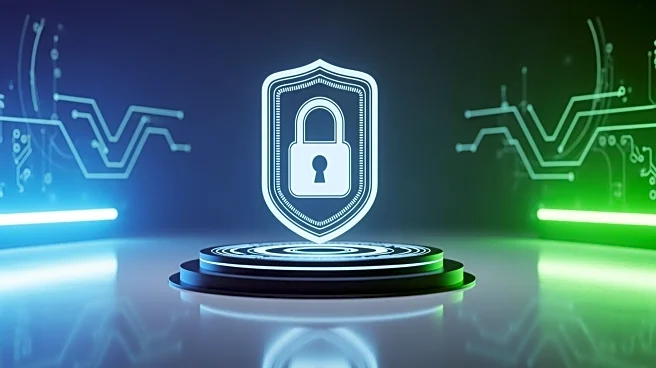What's Happening?
Louisiana has implemented a groundbreaking approach to address the cybersecurity talent gap by integrating higher education with state cybersecurity operations. The initiative involves a partnership between Louisiana State University (LSU), Splunk, Amazon
Web Services (AWS), and TekStream, creating a self-improving cyber workforce ecosystem. Students are trained and employed in the state's Security Operations Center (SOC) while pursuing their studies, allowing them to gain practical experience and certifications. This model not only provides job-ready cybersecurity analysts but also offers significant taxpayer savings by reducing reliance on expensive outsourced labor. The program is designed to continuously improve through student involvement, transforming traditional classroom exercises into integral components of the state's cyber defense strategy.
Why It's Important?
This initiative is significant as it addresses two critical issues: the shortage of cybersecurity professionals and the need for robust state-level cyber defenses. By embedding students in real-world cybersecurity roles, Louisiana is creating a sustainable pipeline of skilled workers who are ready to enter the workforce upon graduation. This approach not only enhances the state's cybersecurity posture but also provides economic benefits by reducing costs associated with outsourced cybersecurity services. The program serves as a model for other states, demonstrating how public-private partnerships can effectively bridge the gap between education and operational needs, fostering both workforce development and state resilience.
What's Next?
As Louisiana's program continues to evolve, other states may look to replicate its success. The model provides a framework for integrating educational institutions into state cybersecurity efforts, potentially leading to widespread adoption across the country. This could result in a national shift towards treating cybersecurity as an ecosystem rather than a siloed department, enhancing overall resilience. Stakeholders, including state governments, educational institutions, and private sector partners, may collaborate to expand this model, creating a network of student-led SOCs that contribute to national cybersecurity efforts.
Beyond the Headlines
The ethical and cultural implications of this program are profound, as it redefines the role of educational institutions in public service. By actively involving students in state operations, the program fosters a sense of civic duty and responsibility among the next generation of cybersecurity professionals. It also highlights the importance of continuous improvement and adaptability in cybersecurity, encouraging a culture of innovation and proactive defense strategies.

















